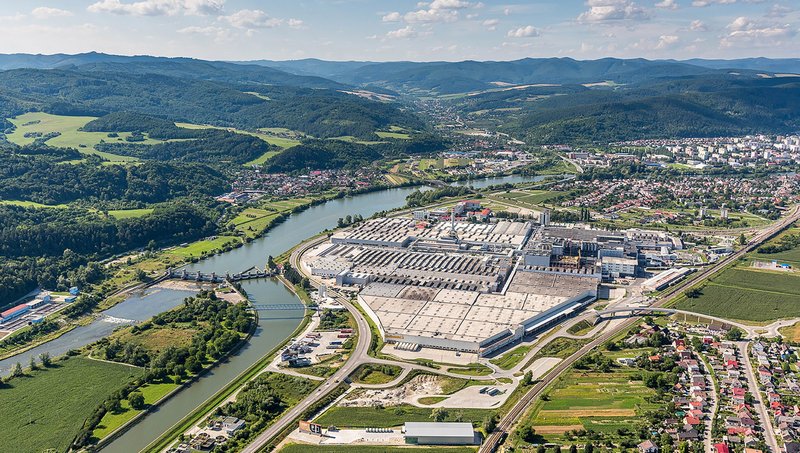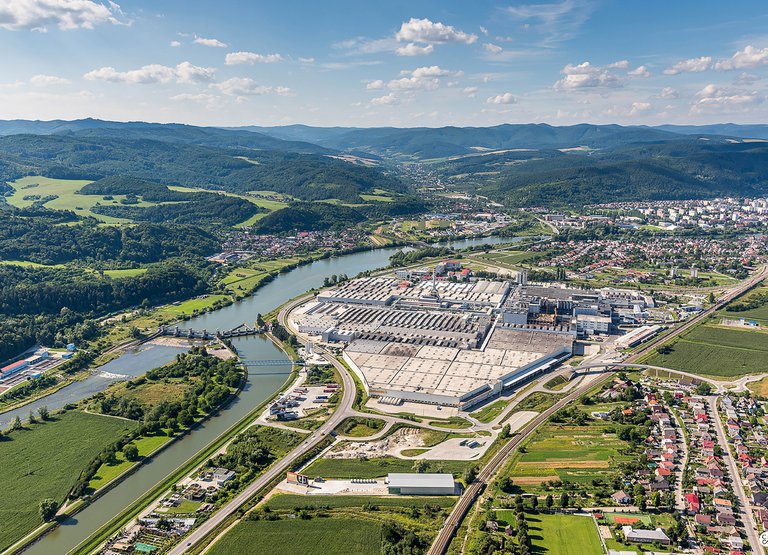First Continental Truck Tire Plant Receives Internationally Recognized ISCC PLUS Sustainability Certification
- Certification attests to compliance with special sustainability standards
- "Our plant in Púchov is the first Continental truck tire plant to receive the ISCC PLUS certification. It is a sign of our commitment to both quality and sustainability," says Anton Vatala, Head of the Continental truck plant in Púchov, Slovakia
- Continental's aim: Over 40 percent renewable and recycled materials in its tires by 2030
Hanover, Germany, July 09, 2024. The Continental plant in Púchov, Slovakia, recently became the company's first tire plant also producing truck tires to receive the International Sustainability and Carbon Certification (ISCC) PLUS sustainability certification. This globally recognized certification confirms the transparency of the traceability of the raw materials used in the production process. Certification of the raw materials enables Continental to ensure the end-to-end traceability of the materials from sustainable sources. For the premium manufacturer, this represents another step on the journey towards 100-percent sustainable materials in its tire products by 2050 at the latest. Púchov is the company's third ISCC PLUS-certified production site, following the tire plants in Lousado, Portugal, and Hefei, China.
"Our plant in Púchov is the first Continental truck tire plant to receive the ISCC PLUS certification. It is a sign of our commitment to both quality and sustainability," says Anton Vatala, Head of the Continental truck tire plant in Púchov, Slovakia.
The ISCC PLUS certification is based on fulfilling and documenting certain raw material mass balancing procedures. In the mass-balance approach, fossil, renewable and recycled raw materials are mixed in existing systems and processes. The quantities used are tracked along the entire value chain and can therefore be allocated proportionately at any time. The mass-balance approach enables Continental to gradually increase the proportion of sustainable materials in its products. It ensures that the balance of certified sustainable materials can be accurately reported.
"Certifying our production processes underpins our extensive efforts in the area of sustainability. With ISCC PLUS, we are able to tackle the transition to a circular economy and a sustainable bio-economy," says Jorge Almeida, Head of Sustainability at Continental Tires. He adds: "Our aim is to gradually roll out the mass balance approach to all our tire plants worldwide. Púchov is our first truck tire plant to be certified for this purpose."
Complete traceability of mass-balance-certified materials
ISCC PLUS is an internationally recognized voluntary certification system. It is applicable to the bio-economy and circular economy and certifies non-conventional raw materials that can be used, for example, in the areas of foodstuffs, animal feed, chemicals, plastics, packaging and textiles. The various criteria required for ISCC PLUS certification include the traceability of raw materials, compliance with environmental standards, the protection of ecosystems, ensuring compliance with labor and human rights and the promotion of sustainable economic development.
The UltraContact NXT, the most sustainable serial tire from Continental, uses mass-balance-certified materials. For example, synthetic rubber made from bio-based and bio-circular raw materials or carbon black, which is produced in part using oil from circular processes. It is manufactured at the tire plant in Lousado.
Target for 2050 at the latest: tires made entirely from sustainable materials
Continental is working intensively to switch as many raw materials as possible in production to sustainable materials. Raw materials that could be used in tire production in the future include agricultural waste such as the ash from rice husks, rubber from dandelions, recycled rubber, or PET bottles.
The certification of the Continental plants in Púchov, Hefei and Lousado is an important milestone in Continental’s efforts to use more than 40 percent renewable and recycled materials in its tires by 2030 and to become completely climate-neutral by 2050. By 2050 at the latest, all new tires from Continental are to be made entirely from sustainable materials.
The tire plant in Púchov
The Continental truck tire plant in Púchov, which recently became part of Continental Tires Slovakia, has a long tradition in the rubber industry. Tire production started here in 1950.
More than 5,000 people work at Continental Tires Slovakia in Púchov. Continental produces tires for passenger cars, light trucks and as well as trucks. The plant also houses a technology center, for global tire research and development, as well as the consolidated unit of ContiTech.

Laura Averbeck
Communications Manager Sustainability
Continental Tires

Henry Schniewind
Head of External Communications
Continental Tires



